Subtotal: $
Checkout-

Will There Be an AI Apocalypse?
-

Taming Tech in Community
-

Tech Cities of the Bible
-

Give Me a Place
-

Send Us Your Surplus
-

Masters of Our Tools
-

ChatGPT Goes to Church
-

Poem: “Blackberry Hush in Memory Lane”
-

Poem: “A Lindisfarne Cross”
-

Poem “Fingered Forgiveness”
-

God’s Grandeur: A Poetry Comic
-

Birding Can Change You
-

Disability in The Heaven & Earth Grocery Store
-

In Praise of Excess
-

A Church in Ukraine Spreads Hope in Wartime
-

Toward a Gift Economy
-

Readers Respond
-

Loving the University
-

Locals Know Best
-

A Word of Appreciation
-

Gerhard Lohfink: Champion of Community
-

When a Bruderhof Is Born
-

Peter Waldo, the First Protestant?
-

Humans Are Magnificent
-

Who Needs a Car?
-

Covering the Cover: The Good of Tech
-

Jacques Ellul, Prophet of the Tech Age
-

It’s Getting Harder to Die
-

In Defense of Human Doctors
-

The Artificial Pancreas
-

From Scrolls to Scrolling in Synagogue
-

Computers Can’t Do Math

The Tech of Prison Parenting
Even a little technology can make a big difference.
By Robert Lee Williams
June 5, 2024
The lights are off in the cell block, but I’m lotused on my bed, my tablet in hand, angling the screen to catch the lamp’s orange glow. I’m scrolling through the sixty new pictures that my fifteen-year-old daughter, Harmony, just sent me. All of the pictures that now dominate my photo gallery are snapshots that span her life from toddlerhood to adolescence. Looking at everything I missed as a father is bittersweet. Prison took the best years of my life, and kept me from being present during those tender, irreplaceable moments.
I’m a resident of Sullivan Correctional Facility, a maximum-security prison in Fallsburg, New York, in the Catskills. The first decade after I was incarcerated, this technology wasn’t available to me.
Ironically, at that point, I was about to raise her full-time when I went away. Harmony’s mother, Sarah, has had problems with addiction for many years. In 2009, my probation officer, Dan Bryant, said the Department of Social Services contacted him and told him Sarah had lost custody of Harmony and that I had to get custody of her. I simply said, “OK.” I didn’t want her to fall into the clutches of a broken foster care system. Unfortunately, while in the process of getting custody, I committed the crime that would separate us for a long time, a crime I eventually had to tell my daughter about.
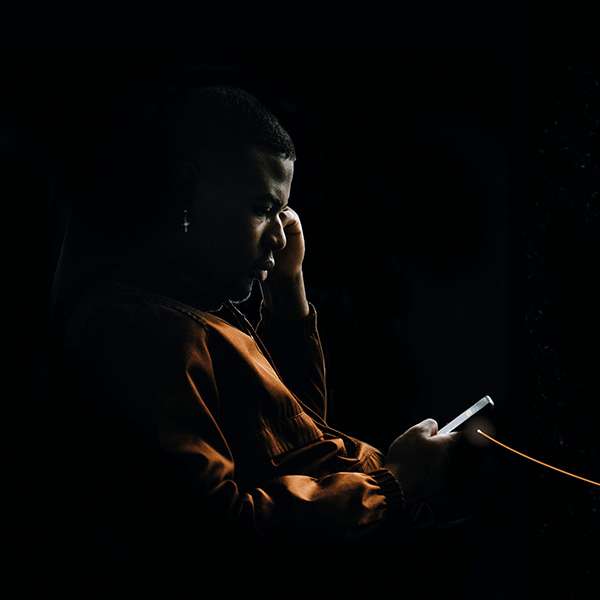
Photograph by Ivan Sankov/ Pexels. Used by permission.
In June that same year, I killed my girlfriend. We partied that night, drank, danced, then argued on the drive home. Once we were inside the apartment, she stabbed me. I stabbed her. She died. I went to the hospital, then prison. I was sentenced to twenty-five years for manslaughter.
Many people are kicking heroin, crack, or meth addictions when they first get to prison. I was a social media junkie kicking the World Wide Web cold turkey. Unlike the old-timers who’d been in prison since the eighties and nineties, when pagers and Motorola flip-phones were considered the height of technology, I knew why I was jonesing. In 2010, when Facebook and Twitter were in their infancy and Myspace dominated the web, I had a recurring dream of logging in to Myspace, pointing and clicking, and typing messages to family, friends, and exes – my inbox bursting with replies.
Then I’d hear metal tapping metal, a guard’s baton banging against my bars. I’d wake up locked away from lightning access to everyone who mattered. Back to perfecting my penmanship on love letters and deciding between purchasing a box of Banquet chicken on commissary or purchasing ten stamps to write home to loved ones. I’d feel guilty when I chose drumsticks.
When you first enter prison, there is a two-year institutional adjustment period. That is the average amount of time research shows a prisoner needs to adapt to institutional rules and restrictions, and learn the ropes of prison’s subculture.
After four straight hours of being bounced around a janky-smelling bus – cuffed and shackled to strangers – dumped into a dystopian world of walls and bars, you put your head down and develop a steely gaze if you want to survive. In the beginning, and sometimes in the middle, of a long prison stint, prisoners do what we call “just bidding.” It’s the time period when a sort of inertia sets in (because prison is monotonous and depressing): you lay back, smack squiggly lines from your 13-inch TV that’s always on the fritz, cook ramen, pump iron. You drown your days and nights in prison must-reads, like Alexandre Dumas’s The Count of Monte Cristo, Sister Souljah’s The Coldest Winter Ever, and self-help books like Rhonda Byrne’s The Secret, or Eckhart Tolle’s A New Earth.

Photograph from Visions/iStock photos. Used by permission.
But it’s also critical for your mental and emotional wellness that you maintain communication with your friends and family, your support system, a connection to your life before. Otherwise, you tend to forget who you are, and you become what cages create. It helps to find a loyal friend who will reach out to estranged family and friends who aren’t visiting or reaching out to you.
My friend Krissa was the first of many people kind enough to take on that role. After I told Krissa I hadn’t heard anything from Sarah, she went on Sarah’s Facebook profile, printed out the pictures of Harmony that Sarah had posted on her page, and mailed them to me. In one picture, which was taken in the Galleria Mall, Harmony is in a pink dress, her hair scrunchied into two fuzzy brown puffs, wearing a smile that makes me wonder if she’s smarter than the photographer. I taped it to the wall – against the insane-asylum white, she was the reference point for my sanity. It was all I knew of her for years.
In 2015, I was on a rare phone call with my mom. Rare, because the phone system was so expensive: I couldn’t call her often. She asked me if I had heard anything about my son, Ameer, or Harmony. I hadn’t heard anything about my son, and the things I heard through the grapevine about Harmony didn’t sit well with me. I hated when my mom brought up the topic of my children. It knotted my chest.
I didn’t answer. I just sighed a full breath into the receiver.
I was sick of the phone system costing too much for my poor loved ones, and the fact that hardly anyone I knew took the time to write letters by hand. Besides that, I didn’t want to deal with the anxiety I felt whenever I thought about involving the legal system in what I believed was a private family matter; especially when I knew that if I had internet access at my fingertips, I wouldn’t have these problems.
“Robert,” my mom said, “don’t lose track of your children while you’re in there.”
“You’re right.”
In truth, I wanted to cross the emotionally taxing bridge of parenting upon my release in 2030. Prison is stressful enough. Was I ready to meet the added challenge? As an adopted child who never knew his biological father, I understood that my selfishness was rooted in fear and would be a disservice to my daughter. My mother’s statement gave me goosebumps that lingered for days.
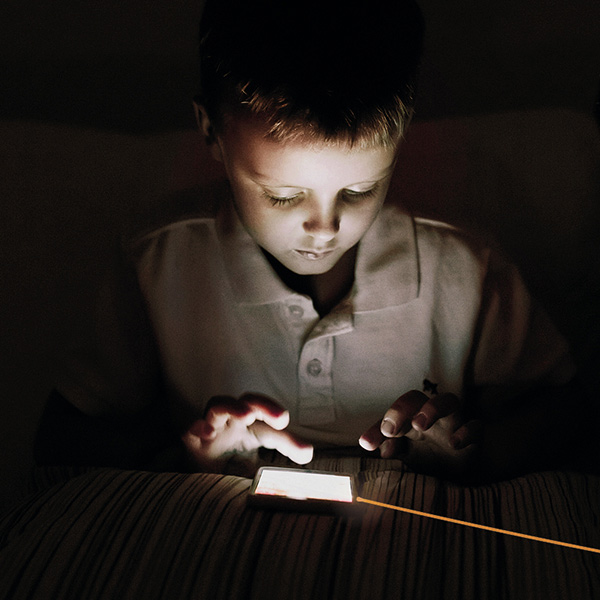
Photograph from Unsplash. Used by permission.
Shortly after we talked, I filed the documentation with the courts to apply for visitation with my daughter. In the meantime, as I waited, I quelled my anxiety with magical thinking.
I imagined swaggering into the visiting room and introducing myself to Harmony as her father. Her light-brown face would light up; so would mine. I’d pretend she was a rocket ship as I lifted her high above my head. I’d make blast-off sound effects, and tell her, “Don’t worry, Daddy’s here.”
About a month later, a correctional officer called me to my gate to sign for legal mail. I scribbled my name. The officer tore open a letter from Family Court, stuck an eyeball inside it, then handed it to me. The court couldn’t serve Sarah the papers. Her mailing address had changed.
Sarah’s Facebook profile hadn’t changed, however, so I had my longtime friend Keith go to her page. He told me that it had been inactive for almost a year. He sent her a message anyway.
I had no idea where my daughter was, who she was living with, whether or not she was safe, or how I would find her. I wondered if she hated me. I would have understood. But as a man, that gnawed at my masculinity.
Inside prison, when guys run out of war stories to tell each other to establish their place in the social hierarchy, they don’t have much on the outside to brag about except their women and children, so those relationships become status symbols. I watched men around me receive letters from their kids. I received zilch. I wished guys, “Have a good one,” as they strutted out to visits and returned showing off Polaroids. In Greenhaven Correctional Facility, the room where we held our prisoner-run NAACP meetings acted as a safe space for my Brooklyn buddies to boast about their children graduating from high school or college. Out of respect, I appeared the best of listeners.
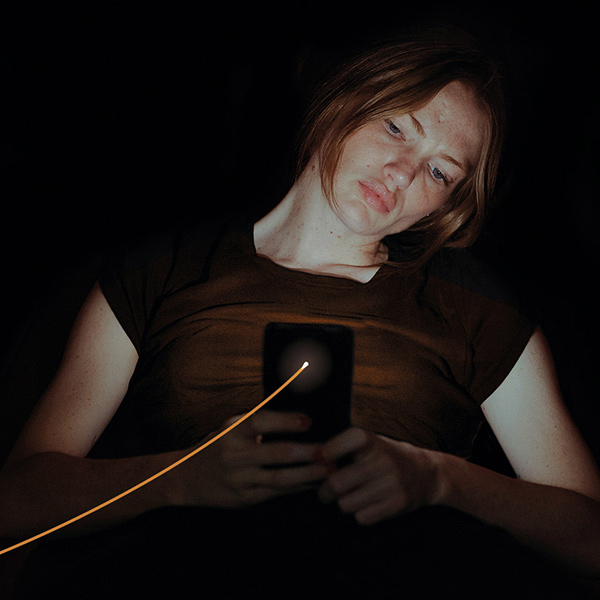
Photograph by VNick Fancher/Unsplash. Used by permission.
Secretly, I brimmed with envy. In this context, my envy had a positive effect – it sparked a growing fire within me. I wanted to be a father to my baby girl, and for her to see me as more than just another incarcerated Black man.
By this time, I’d read PEN America’s Handbook for Writers in Prison (which initially made me believe becoming a writer in prison was possible), devoured Arthur Plotnik’s Spunk & Bite, and made Andrea A. Lunsford and Robert Connors’s The St. Martin’s Handbook and Joseph M. Williams’s Style my new North Star. When I located Harmony, I didn’t want to just be proud of her. I wanted to show her something she could be proud of me for, too. And I knew it somehow would involve slinging ink.
By 2019, I’d been living in Clinton Correctional Facility, a maximum-security prison in Dannemora, New York, for three years. On the outside, Clinton was famous for the escape of David Sweat in 2015. Inside the New York prison system, Clinton is notorious for its barbaric violence.
I watched prisoners get their faces slashed by other prisoners, with tiny bits of hand-sharpened metals and plastics – in the hallways, in the mess hall, in the cell blocks. The best and safest place to use the phone was in the gym, which you only had access to once every other day. Otherwise, you were only permitted to use the phone in the recreational yard.
Clinton’s yard is set up like the Roman Colosseum, with a flat area in the center. It’s full of sand. The sand pit is surrounded by a large hill, crisscrossed with dirt walkways and stone steps, where small areas called courts are sectioned off with plywood fences. You want to stand on a court, not on the flats. Nine times out of ten, whether it is a thousand degrees in the summer or below zero in the winter, stand on those flats and you’re liable to get caught in the middle of a gang riot, forced to choke on pepper spray spewed from gas canisters that guards shoot from towers to disperse the crowds.
The hostile landscape was unavoidable. If I wanted to work out under sunshine or snowfall, or make a phone call to decompress, I had to go outside. I found myself spending more time in the cellblock, banging away on my Swintec typewriter, writing fiction and poetry, wishing for a safer way to communicate with the world beyond the razor wire.
In July 2019, the New York State Department of Corrections introduced the tablet program, which was intended to give the incarcerated population access to music and movies, e-books, and a secured emailing platform to communicate with friends and family. The latter, in particular, has been shown to lower the recidivism rate.
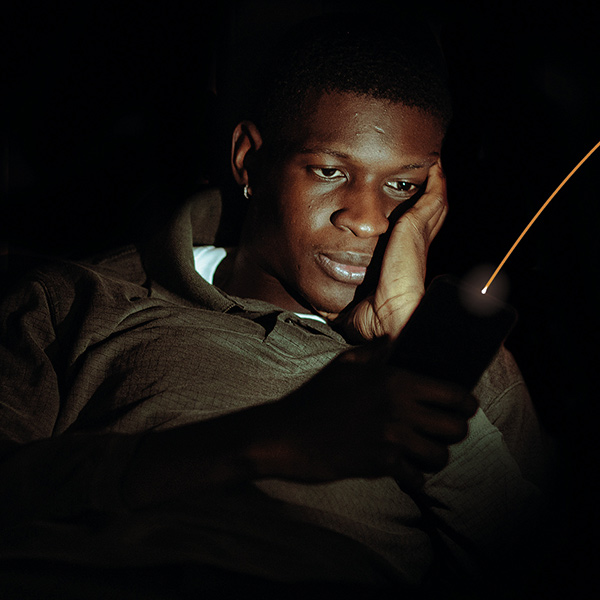
Photograph by Nick Fancher/ Unsplash. Used by permission.
In Clinton, the kiosks were installed inside the slop sinks (which look as disgusting as they sound). The slop sink is a closet-sized cell containing an industrial sink, used to wash out mops and rags, and hang brooms and dustpans on crooked hooks and nails. The slop sink is creepy, dark, and infested with roaches. And I’m a big-time roach-a-phobe.
Luckily, you don’t have to type your emails directly from the kiosks. The email app on your tablet allows you to type up your message and save it in a draft folder for later editing, or put it in your outbox. When you sync your tablet to the kiosk, it sends any messages you have in your outbox and any incoming messages appear in your inbox.
I didn’t waste any time. I got in touch with Harmony’s aunt Shayna, who brought me up to speed in a series of emails: “I feel so sorry for that little girl.”
Harmony had been adopted. Sarah was no longer allowed supervised visitation with Harmony, but Harmony communicated with both of them and her little cousins by phone. I begged Shayna to tell Sarah how to set up a JPay account, the email platform used in prison.
But I would have to wait a full week for a reply. According to the rules, each prisoner is assigned to sync his tablet to the kiosk once a week, for fifteen minutes. Initially, when it came to opening our cells to use the kiosks, the correctional officers gave us a hard time. Their collective sentiment: they didn’t want us to have tablets.
I wasn’t going for that. The instant satisfaction of sending an email, and knowing someone else receives it right away, is powerful. Plus, I needed to send out emails to pull my family together. I decided to risk a disciplinary infraction that could potentially get my tablet taken away by doing what we call “stealing syncs.” This means syncing your tablet to the kiosk without a correctional officer’s permission.
I’d tuck my tablet into the waistband of my pants and walk slightly hunched all the way to the mess hall, hoping it wouldn’t slip. I’d seat myself at the table that the officers point at to go back first. On the way, I’d make it my business to stand in the front of the line. Once we got back inside the cell block, I’d race upstairs ahead of everyone else – including the officer whose job it was to open our cells. I’d slip into the slop sink with the kiosk, plug the USB into my tablet, wait for it to sync. “Come on, come on, come on,” I whispered in the dark, looking around for roaches, listening for footsteps coming up the stairs. “Come on, come on, come on!”
Then I’d sneak out of the slop sink and blend in with the rest of the prisoners walking to their cells to lock in.
On December 15, 2019, Sarah messaged me, gushing: “Harmony looks just like you! Lol … your skin tone, your eyes … she’s like a girl you!”
I read Sarah’s message a thousand times, and just knew that the joy I felt inside my cell that day would sustain me until she put me in contact with Harmony.
But that day took another several months to come. On July 21, 2020, Harmony, now twelve, logged into Sarah’s JPay account: “Hey … it’s Harmony. I can’t wait until I can see you. I’m sorry I don’t have a lot to say, but I love you, and always will. I don’t know if it will show, but I sent a picture of me. OMG. I didn’t see the send button at the top.”
That night, I stayed up until three in the morning tapping away: “Harmony, I detest sounding cheesy and Darth Vader but – this is your father, and I love you.”
I decided that we wouldn’t start our relationship based on lies, because once children know you’ve lied to them, they grow up resenting you. I told her why Sarah and I broke up, and that I didn’t abandon her. I told her exactly what I was in prison for, my reflections, why it happened, and why I should’ve never done what I did. I told her how I used to be well known in the neighborhood as a rapper named 5 Starrz, but now I was a writer and planned on self-publishing a book. I thanked her for saying she loved me, because I feared she might hate me. I called her my little Beauty Queen, and signed off: “I hope this letter lifts your spirits! You are no longer alone. I love you with every light speck of my soul.”
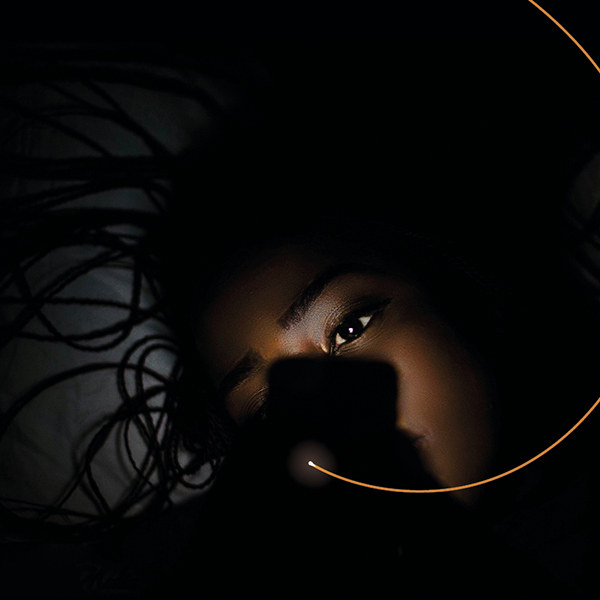
Photograph by Lombe K/Unsplash. Used by permission.
Harmony responded: “When I saw that you thought I hated you, it made me so sad. I never hated you, or my mom. When I was younger I did wonder why things were how they were but I never once ever said or thought of including the word hate next to anyone I love.”
Since July 2020, we have become constant pen pals. I’ve learned to decipher the terse acronymical language in her messages. She told me her favorite rapper was Pop Smoke, created hairstyles to complement outfits, and demanded I take her seriously “all the time.” I looked forward to her long stream-of-consciousness messages about everything and everyone that ticked her off, or depressed her, which she titled, “Just Venting.”
Her ventings, I confess, sucked me into some dark places where I felt the kind of powerlessness that gives you purpose. Reading of the many injustices my daughter suffered at the reckless hands of what were supposed to be responsible adults, from such a young age, I felt so much guilt and rage. I could’ve taken it out on a fellow prisoner who didn’t deserve it, or a correctional officer, which would have done nothing to help. Instead, I channeled my anger. I shared with her the story of my own challenging childhood, and the despair of prison, and how I understood so much of what she was going through.
I wrote her, “I understand what it’s like to feel trapped, alone, with no one to talk to but the page.”
At one point, I found myself running out of stamps. When we first got the tablets, a single stamp cost forty-six cents. By comparison, in New York, the wage for prison labor is ten to sixty-five cents an hour, so stamps cost us a lot. Since then, the cost of a JPay stamp in New York has been lowered to twelve cents per stamp, thanks to families and advocacy groups complaining of the high prices. Advocates continue to argue that the prices for secured messaging services like JPay should be lower, or even free for prisoners, given the social benefits.
I appreciate these concerns, and certainly acknowledge that in some states the price for JPay’s services are higher still. But this is not at the front of my mind when I think about JPay. Rather, I’m grateful to the Department of Corrections for bringing in this company and tablets to provide us with services. Sometimes I wish the tablets weren’t so cheaply made and glitchy, and that lengthy messages didn’t take days to receive. (This adds a layer of difficulty when I write for publications and try to work the text out with my editors!) Maybe it would be better if it weren’t a monopoly, and another company was brought in to make the prices more competitive. This is corporate America; in order to function and provide a service, someone has to make money. More to the point, whatever the provider or the cost, I would not have been able to form a bond with my daughter without this technology.
I still worry about my son, Ameer, now twenty-four, whom I have tried to reach via similar methods without success. I’m still hoping to connect with him one day. I also want him to know I love him.
Meanwhile, I began to fulfill my dream of becoming a professional writer. In 2023, I landed three pieces: “In Prison, Networks of Addiction Run Deep,” published by the Prison Journalism Project, “Turning Sentences Around,” published by PEN America, and “Good Writing in a Bad Place,” published in Literary Hub.
I wrote all three of those pieces on my tablet, and then worked with editors on them via emails. This tablet enabled me to build a career and forge professional connections that I can cultivate upon my release. Now, when Harmony googles her dad, even though I’m locked up, she sees more than just a prisoner. She sees a writer with long dreads. Over the phone, she tells me I still have “drip” (style). She is proud enough of what her old dad has made of himself to show her friends my YouTube presentation about higher education in prison, which was recorded live via Webex. (It felt good to tell her that I was a Black historymaker: to my knowledge, the first incarcerated New Yorker to do this.)
Scrolling through another set of pictures Harmony sent me, where she looks all grown up, I can’t help but take pride in thinking that she does look like a girl me. But it’s even better for Harmony, in my opinion, that she also looks like her mother. Most of all, she now knows that I love her and have always loved her, even during those years we weren’t able to reach each other.
For me, JPay helped reunite a family. You can’t put a price on harmony.
Already a subscriber? Sign in
Try 3 months of unlimited access. Start your FREE TRIAL today. Cancel anytime.












































James Surry
This was a really beautiful piece. Thank you, from London.
KD
As the child of an absent father, and thinking about your son, what the loving someone look like?
hms
Thank you for your article. I regularly visit a friend in prison in another country...this encouraged me that what I'm doing is important even though it's really hard!
Cat Jenkins
Thank you for this. I am a mum who did time (not very long). You've reminded me of the difficulties in being their mum at this time. Well done you !x
Ed Schupbach
Thank you for publishing this. I cried when I read it - a 75-year-old white guy who often feels very helpless against the cold, impersonal, cruel powers that have us divided in life for their commercial gain, even though I believe God is ruling in love over all. This article re-fired my already ignited passion to know the reconciling power of Love that does not turn away from the oppressed and marginalized, or the isolated soul next door. It's the only way to realize we are not powerless if we will only reach out to connect, rather than to withdraw.
Virginia Johnson
Thank you for writing this Robert. I’m so happy that you have Harmony’s love in your life to help you survive. And she now has your love and guidance